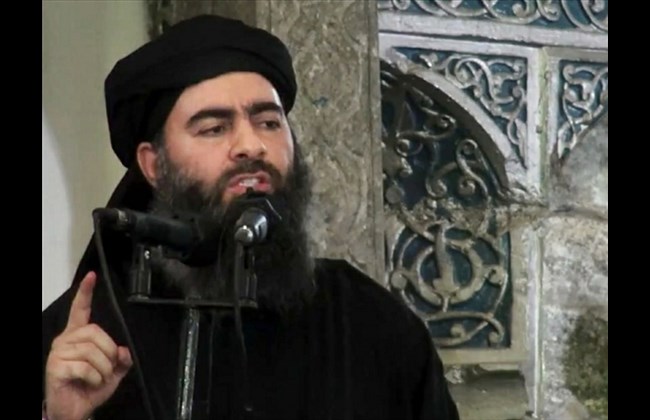The continuous rise of ISIS
Abdulrahman al-Rashed/Al Arabiya
Tuesday, 19 May 2015
The capital of Iraq’s Anbar province, Ramadi, has fallen to the Islamic State of Iraq and Syria (ISIS), almost a year after the fall of Mosul, the capital of Nineveh province. What we are confronting in ISIS is a cancerous state that is expanding and becoming more dangerous in both Iraq and Syria, and threatening Saudi Arabia and Jordan.
Ramadi fell due to the same mistakes that led to the fall of Mosul. The entire world saw Iraqi army forces quickly fleeing, followed by political chaos in the capital Baghdad and each party blaming the other. Truth be told, the blame falls entirely on the Iraqi government, which failed to make decisive decisions and accepted not to anger extremists.
Winners and losers?
Who are the winners and losers from the ISIS victory in Ramadi, the capital of the biggest province in Iraq? ISIS is the biggest winner, as it is growing from a scattered terrorist organization into a state. By controlling major cities, it attains more arms, members, money and influence. It occupies dozens of cities and towns, including the capitals of two provinces. It overlooks the borders of three countries, and has come closer to Baghdad.
What we are confronting in ISIS is a cancerous state that is expanding
The first losers are the people of Anbar, as their suffering will increase amid the rising number of displaced. The United Nations estimates the number of Iraqis displaced within the country at more than 2 million, most of them Sunni Arabs who are prohibited from seeking refuge in Baghdad, Karbala and Kurdistan due to sectarian and racial reasons.
Residents of cities occupied by ISIS cannot stay for fear of being slaughtered, having their sons unwillingly recruited, or getting killed by shelling, as happened to people in Tikrit.
Another winner of the ISIS expansion is Tehran, as Iraq has become a failed state that requires Iranian support. Tehran has offered to send more military support and thus repeat the Syrian experience, where the regime is now mainly dependent on Iranian power. The rich, strategic country of Iraq is transforming into an Iranian province due to ISIS victories.
These victories are unsurprising given that Iraqi Shiite sectarian forces reject the arming Anbar tribes to defend themselves. Prime Minister Haidar al-Abadi had to back down on his promises to arm those tribes due to sectarian parties’ protests. He also had to object to Washington’s desire to arm Sunni tribes that want to fight terrorists and defend themselves, warning that such a move is a violation of Iraqi sovereignty.
Iran’s defense minister was the first of visitors to Baghdad during this crisis, and Abadi has asked Shiite militias to liberate Ramadi after the Iraqi army’s failure!
صعود وصعود داعش
عبد الرحمن الراشد/الشرق الأوسط/19 أيار/15
وها هي الرمادي، عاصمة محافظة الأنبار، أيضا تسقط بيد تنظيم داعش، بعد نحو عام فقط من سقوط الموصل، عاصمة محافظة نينوى. نحن أمام دولة سرطانية تكبر حجما وخطرا في كل من العراق وسوريا، وتهدد الجوار الأردني والسعودي، أيضًا. انهارت الرمادي بنفس الأخطاء التي تسببت في سقوط الموصل، وشاهد العالم قطعات الجيش العراقي تفر مسرعة من المدينة، تتبعها فوضى سياسية، في العاصمة بغداد، وكل فريق يلوم الآخر. والحقيقة اللوم كله يقع على الحكومة العراقية التي عجزت عن اتخاذ قرارات حاسمة وقبلت عدم إغضاب المتطرفين.من الكاسب والخاسر من وراء انتصار «داعش» في عاصمة المحافظة الأكبر في العراق؟«داعش» الكاسب الأول. فهو ينمو من تنظيم إرهابي مبعثر إلى دولة، وبسيطرته على مدن رئيسية يحصل على المزيد من السلاح والرجال والمال والنفوذ. الآن، يتمدد محتلاً عشرات المدن والقرى، بما فيها عاصمتا محافظتين، ويطل على حدود ثلاث دول، واقترب بشكل أكثر من العاصمة بغداد.والخاسر الأول هم أهالي كل محافظة الأنبار. ستزيد معاناتهم وسيتصاعد عدد المشردين، الهائمين على وجوههم في الصحراء. ووفق تقديرات الأمم المتحدة، فإن عدد اللاجئين العراقيين داخل بلدهم يبلغ أكثر من مليوني عراقي، معظمهم من السنة العرب، الذين يحظر عليهم اللجوء إلى بغداد وكربلاء وكردستان لأسباب طائفية وعنصرية. وفي الوقت نفسه لا يستطيعون البقاء في نفس المدن التي يحتلها مقاتلو «داعش» خوفا من الذبح، أو من تجنيد أبنائهم رغما عنهم، أو خشية أن يقتلوا نتيجة القصف الجوي أو قذائف المدفعية، كما حدث لأهالي مدينة تكريت.الكاسب الآخر من تمدد «داعش» هو إيران؛ فقد أصبح العراق دولة فاشلة يحتاج إلى دعم الإيرانيين. وقد عرضت حكومة طهران استعدادها لإرسال المزيد من الدعم العسكري، لتعيد التجربة السورية، حتى أصبح النظام السياسي يعتمد بشكل أساسي على القوة الإيرانية، في حماية نظام الأسد. وبسبب انتصارات «داعش» يتحول العراق، الغني والاستراتيجي، مع الوقت إلى محافظة إيرانية. وليس غريبًا كيف استمرت الهزائم، فالقوى العراقية الشيعية المتطرفة، بما فيها قيادة «الحشد الشعبي»، وهي ميليشيات طائفية، ترفض مبدأ تسليح عشائر الأنبار من أجل الدفاع عن مناطقها وأهاليها ضد هجمات «داعش». وقد اضطر رئيس الوزراء الدكتور حيدر العبادي إلى التراجع عن وعوده لعشائر الأنبار بتسليحهم، نتيجة احتجاجات القوى الطائفية. كما اضطر العبادي إلى الاعتراض على رغبة الحكومة الأميركية بتسليح العشائر السنية لمقاتلة الإرهابيين في مناطقهم، محذرًا أنه تجاوز للسيادة العراقية. وهكذا سقطت عاصمة الأنبار، وتمدد التنظيم الإرهابي ليعطي الإيرانيين مسوغات شبيهة بما فعلوه في سوريا. وزير الدفاع الإيراني كان أول الزائرين لبغداد، كما أعلن العبادي أنه «ناشد» الحشد الشعبي التقدم لتحرير الرمادي بعد فشل الجيش!






















